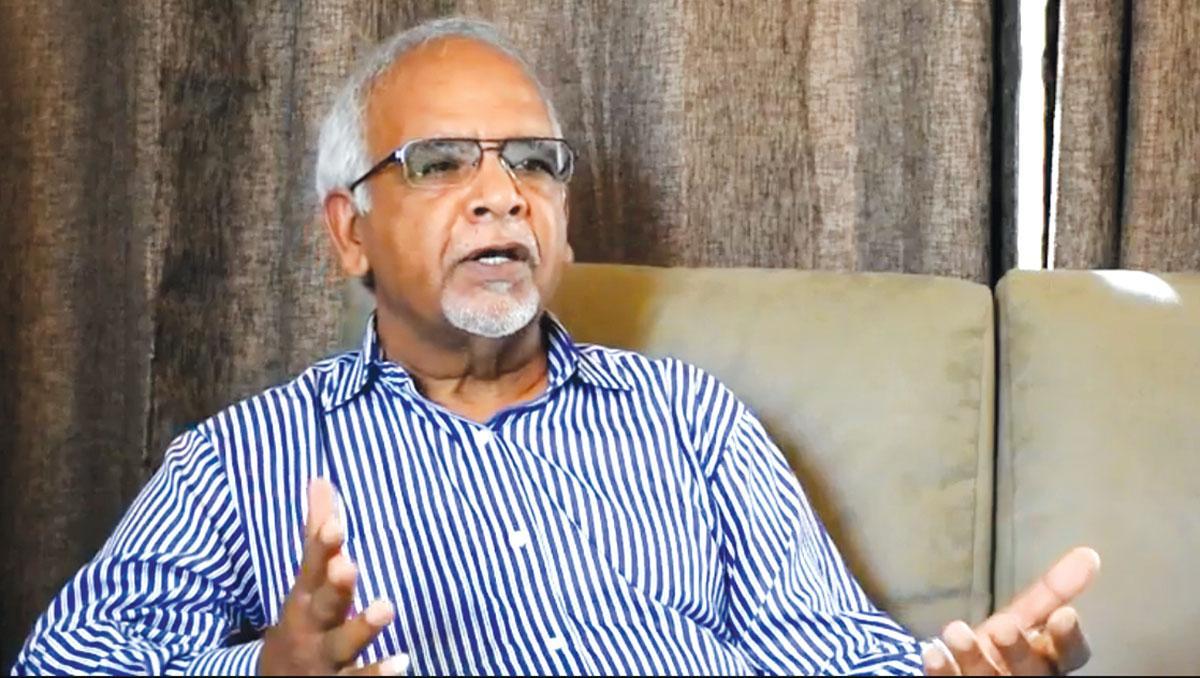Africa-Press – Mauritius. Former Minister of Education Dharam Gokhool gives his views on the withdrawal of his case in the Supreme Court by Cader Syed-Hossen, calling for the judiciary to recommend measures to speed the timely delivery of justice.
He draws attention to the demographic decline that is affecting school intake and the falling standards in both the education and health sectors and is worried about a two-tier system that in both sectors – one for the rich and one for the poor.
He also comments on the political situation in view of the next general election and argues for a restoration of the trust deficit in the electorate by an opposition that will bring about a turnaround on the basis of a genuine, robust and actionable programme.
Whatever the merit of his case, Cader Sayed-Hossen must have been right to have withdrawn the electoral petition against the election of MSM candidate Gilbert Bablee lodged in November 2019 and awaiting a judgement 12 months or probably more before the next elections.
Along the way Justice Benjamin Marie Joseph, who was hearing the case together with Justice R. Seeetohul-Toolsee, went into retirement, and the case will now have to be taken anew. Mr Sayed-Hossen said he did not want to be “a party to this mockery of justice”. How do you react to that?
Dharam Gokhool: It was in the early 1600s that English philosopher and jurist Sir Edward Coke first used the phrase: Justice delayed is justice denied – iustitia differtur iustitia negatur.
This phrase later became the guiding principle of Dr Martin Luther King Jr. ’s crusade against injustice in the USA. The trial and tribulations and the fate of the Cader Sayed-Hossen electoral petition is a case in point.
The right to vote at elections is an integral part of the Constitution of the Republic of Mauritius. It is provided for under Section 44 of the constitution.
After the elections, any aggrieved candidate has 21 days to file an electoral petition with the Supreme Court. Since November 28, 2019, the Cader Sayed-Hossen case has been before the Supreme Court.
However, due to the retirement of the one of the judges hearing the case, a new panel of judges will need to hear the case afresh. It’s been four years now, and it’s unclear when a verdict will be rendered.
He would have felt proud of having battled for justice, regardless of the outcome, if the verdict had been delivered in a timely manner. But Cader Sayed-Hossen will have to bear a dreadful burden for the rest of his life.
A very terrible situation. The experience must be painful for him, his loved ones, his friends, and his supporters. This episode calls for deep soul-searching among our lawmakers and our judiciary, and urgent remedial action should be envisaged to prevent a repetition of the Cader Sayed-Hossen episode.
The Republic of Mauritius cannot delay and/or deny justice to any citizen. One of the top priorities of a future government should be to ensure that the judiciary is provided with all the necessary resources and facilities for the timely delivery of justice.
* One would have expected that cases relating to electoral petitions would have been fast-tracked despite delaying tactics, if any, by lawyers of either parties.
It’s obvious that any delay in the determination of electoral petitions will result in such petitions losing their relevance, isn’t it? All institutions, including the judiciary and other organizations, are endowed with legal obligations, matching power, and the duty of accountability.
A sense of priorities should direct how they manage their activities. This is especially true for organizations in the public sector that are supported by taxpayers’ money. The Judiciary cannot be exempt from this obligation.
The Judiciary, and all other institutions, must ensure that justice is carried out without delay because it is “one of the three pillars of our sovereign democratic State” and “is vested with the power to administer justice in the Republic of Mauritius” and because of the sacred principle of separation of powers.
About 10,108 cases remained unresolved by the end of 2022, and the trend is worsening. There is a mention of the necessity “to review procedures to expedite the disposal of cases” among the strategic goals of the judiciary (Judicial Branch Annual Report, 2022).
This can’t just be wishful thinking, though. Justice must not only be done, but also be seen to be done, as the saying goes. Election petitions directly affect how well a democratic state operates, how the rule of law is upheld, and how the Constitution is upheld.
Given the unique nature of electoral petitions, any unnecessary delay will amount to tampering with the course of justice. Election petitions must be processed quickly; it is not only necessary, it is essential.
Therefore, it is appropriate that the judiciary review its internal procedures and processes and make appropriate recommendations to the lawmakers to legislate for the timely and speedy delivery of justice.
* One other issue which has made the headlines this week and which would be of particular interest to you: the drop in admission to secondary schools, in particular to public schools. 98,900 were enrolled in March 2023 (down from 102,722 in Oct. 2022), and 44.8% went to public schools against 55.2% who chose the private fee-paying schools.
We are not aware if this is a normal phenomenon in developed countries with a burgeoning middle- or upper middle class, but what do these statistics tell you? The decline in admissions in secondary schools is just the tip of a demographic iceberg.
Mauritius is confronted with a very complex social, economic, and cultural challenge driven by the triple phenomenon of an aging population, a declining birth rate, and brain drain.
This drop is a direct result of our birth rate declining. The birth rate for Mauritius in 2021 was 10.026 births per 1000 people, a 0.72% decline from 2020.
In 2022, the birth rate was 9.954 births per 1000 people, a 0.72% decline from 2021. The current birth rate for Mauritius in 2023 is 9.881 births per 1000 people, a 0.73% decline from 2022.
Clearly, fewer children being born results in a declining overall student population. This declining trend will persist due to a decline in the fertility rate, which will have an adverse effect on the likelihood of economic growth.
Regarding the rising trend in enrolment in private fee-paying schools, it is a sign that people’s opinions of public schools are becoming more negative as a result of a number of factors, including a decline in teaching and learning standards, a deterioration in school leadership and management, a rise in school indiscipline, and a growing understanding that a passing grade is not a reliable indicator of higher-quality academic performance.
Source: Mauritius Times
For More News And Analysis About Mauritius Follow Africa-Press







